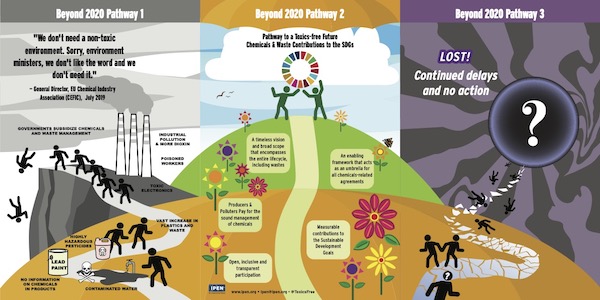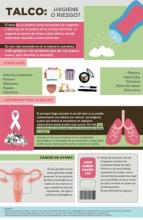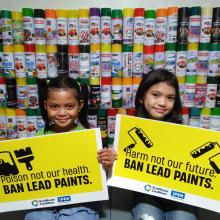The Strategic Approach to International Chemicals Management (SAICM) was signed in 2006 at the first session of the International Conference on Chemicals Management (ICCM). SAICM is a unique global strategy to create a world where chemicals are no longer produced or used in ways that harm human health and the environment.
IPEN is actively engaged in the August 2022 in-person SAICM IP4 (4th Intersessional Process) meeting in Bucharest, Romania. We have engaged with the SAICM process since the first Preparatory meeting in 2003 and continue to support the contributions of our member organizations around the world to the SAICM Process today.
While the Stockholm Convention provides an international forum to develop protections from Persistent Organic Pollutants (POPs), there are thousands of toxic chemicals that can harm our health and the environment but are not considered POPs. SAICM the only international agreement that addresses the full range of health and environmental concerns associated with the production and use of these chemicals.
Although it is not legally binding, the adoption of SAICM by more than 100 governments around the world provides the momentum for an international movement to reform chemical policies and practices. SAICM’s objective is to achieve the sound management of chemicals throughout their life cycle so that, “by 2020, chemicals are used and produced in ways that lead to the minimization of significant adverse effects on human health and the environment.”
However, as early as 2013 the African Region noted that “Challenges in the sound management of chemicals will persist beyond 2020 as new chemicals enter the market and new emerging policy issues are identified.”
See the Information Materials page for resources relevant to SAICM IP4 and other background materials.
IPEN Pamphlet
SAICM is a critical tool for sustainable development as the only framework to address the hundreds of thousands of toxic chemicals not covered by any other global agreement.
This poster explains why SAICM is necessary, today's reality of planetary threats from chemical pollution, and what is needed for ICCM5 to have a strong, meaningful framework.







